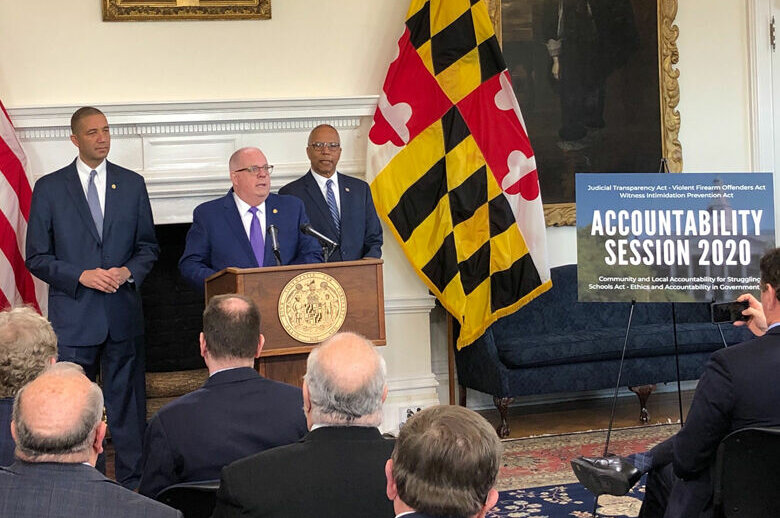
One day before lawmakers return to Annapolis for the 90-day legislative session, Maryland Gov. Larry Hogan announced his priorities, calling for added accountability for elected officials.
Framed by placards dubbing the upcoming session “Accountability Session 2020,” Hogan referenced the cases of officials accused of corruption, such as former Baltimore Mayor Catherine Pugh and former state Del. Tawanna Gaines.
In the latest case involving a state lawmaker, former state Sen. Cheryl Glenn of Baltimore was accused of bribery and wire fraud in federal court.
Under Hogan’s proposals, the penalties for bribery would increase, with minimum fines of $10,000. In addition, officials found guilty of corruption would be forced to give up their state pensions. That would also apply in cases when an employee or elected official pleads guilty or no contest.
Hogan’s plan would give more authority to the State Ethics Commission, allowing it to assess civil penalties to state employees and elected officials. Currently, the commission has the authority to level civil penalties in lobbying cases.
While Hogan called for more accountability and transparency, he was asked about a recent story in Washington Monthly. That story detailed how Hogan, a real estate developer, has a business that is run by his younger brother, and that the business has properties near projects approved by the state Board of Public Works.
Hogan chairs that board.
“I owned things before I became governor,” he told reporters on Tuesday, noting that such coverage of his business interests isn’t new. “Some of them have gone up or down in value, and I’ve released my tax returns, even though I wasn’t required to.”
The business is managed by a trust under an agreement approved by the State Ethics Commission.
WTOP’s Kate Ryan reported from Annapolis, Maryland.








